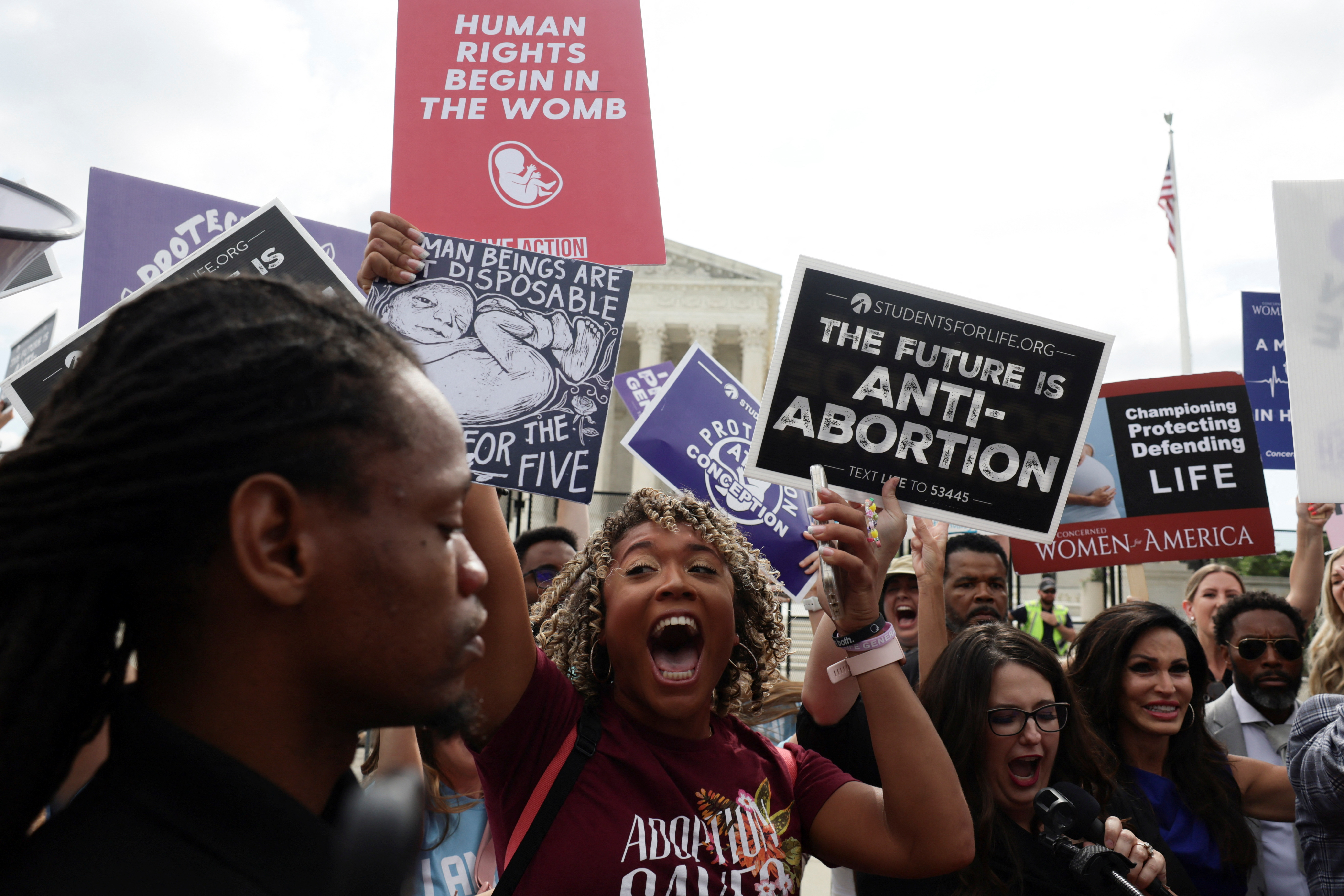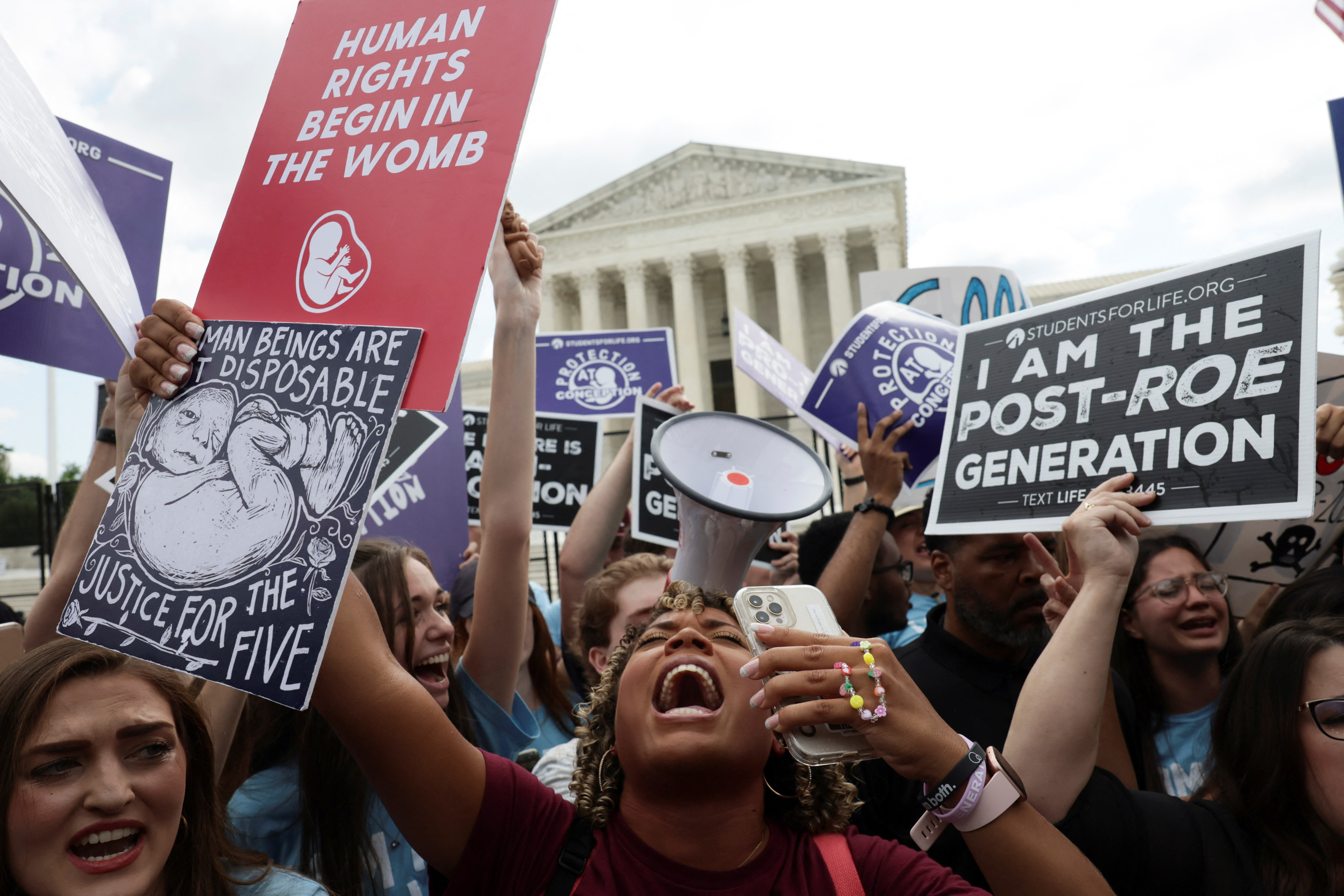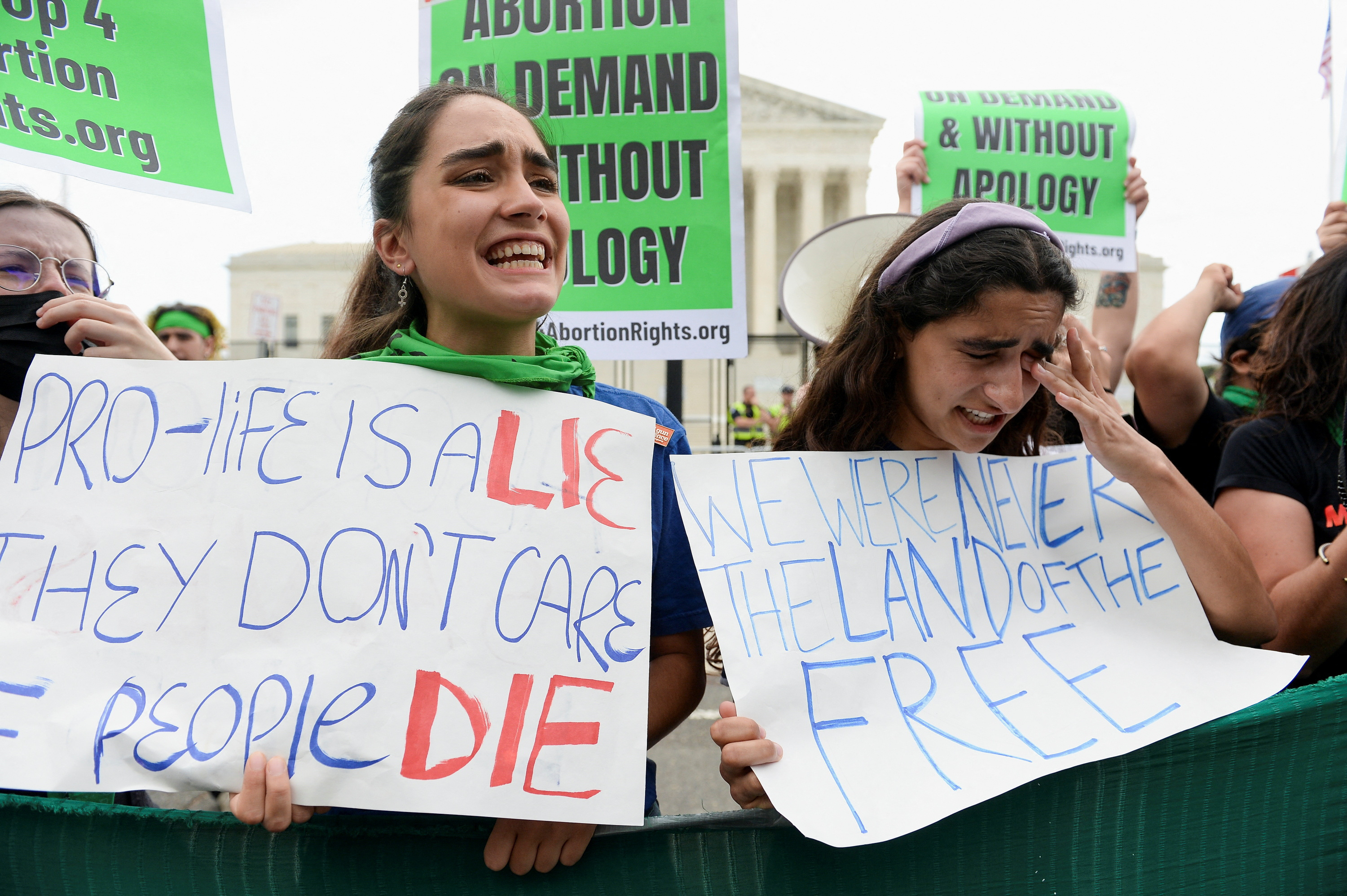The U.S. Supreme Court on Friday took the dramatic step of overturning the landmark 1973 Roe v. Wade ruling that recognized a woman’s constitutional right to an abortion and legalized it nationwide, handing a momentous victory to Republicans and religious conservatives who want to limit or ban the procedure.
The court, in a 6-3 ruling powered by its conservative majority, upheld a Republican-backed Mississippi law that bans abortion after 15 weeks of pregnancy. The vote was 5-4 to overturn Roe, with Chief Justice John Roberts writing separately to say he would have upheld the Mississippi law but not taken the additional step of erasing the Roe precedent altogether.
The justices, in the ruling written by conservative Justice Samuel Alito, held that the Roe decision that allowed abortions performed before a fetus would be viable outside the womb – between 24 and 28 weeks of pregnancy – was wrongly decided because the U.S. Constitution makes no specific mention of abortion rights.
By erasing abortion as a constitutional right, the ruling restored the ability of states to ban it, fundamentally altering America’s landscape on the issue of reproductive rights. Twenty-six states are either certain or considered likely to ban abortion. Mississippi is among 13 states with so-called trigger laws to ban abortion with Roe overturned.
President Joe Biden condemned the ruling, calling it a “sad day” for America and labeling the court’s conservatives “extreme.” He said the fight over abortion rights “is not over.” Biden said his administration will protect access to contraceptives and will do everything in his power to combat efforts to restrict women from traveling to other states to obtain abortions.
A draft version of Alito’s ruling indicating the court was ready to overturn Roe was leaked in May, igniting a political firestorm. Friday’s ruling largely tracked this leaked draft.
“The Constitution makes no reference to abortion, and no such right is implicitly protected by any constitutional provision,” Alito wrote in the ruling.
Roe v. Wade recognized that the right to personal privacy under the Constitution protects a woman’s ability to terminate her pregnancy. The Supreme Court in a 1992 ruling called Planned Parenthood of Southeastern Pennsylvania v. Casey reaffirmed abortion rights and prohibited laws imposing an “undue burden” on abortion access. Friday’s ruling overturned the Casey decision as well.
“Roe was egregiously wrong from the start. Its reasoning was exceptionally weak, and the decision has had damaging consequences. And far from bringing about a national settlement of the abortion issue, Roe and Casey have enflamed debate and deepened division,” Alito added.
Overturning Roe was long a goal of Christian conservatives and many Republican officeholders. Opinion polls show a majority of Americans support abortion rights.
The court’s three liberal justices – Stephen Breyer, Sonia Sotomayor and Elena Kagan – issued a jointly authored dissent.
“Whatever the exact scope of the coming laws, one result of today’s decision is certain: the curtailment of women’s rights, and of their status as free and equal citizens,” they wrote.
As a result of Friday’s ruling, “from the very moment of fertilization, a woman has no rights to speak of. A state can force her to bring a pregnancy to term, even at the steepest personal and familial costs,” the liberal justices added.
The ruling empowered states to ban abortion just a day after the court’s conservative majority issued another decision curtailing the ability of states to enact gun restrictions.
Anti-abortion activists, who had gathered outside the courthouse for days, erupted in cheers after the ruling.
“I’m ecstatic,” said Emma Craig, 36, of Pro Life San Francisco. “Abortion is the biggest tragedy of our generation and in 50 years we’ll look back at the 50 years we’ve been under Roe v. Wade with shame.”
House of Representatives Speaker Democrat Nancy Pelosi, a Democrat, denounced the decision, saying that a “Republican-controlled Supreme Court” has achieved that party’s “dark and extreme goal of ripping away women’s right to make their own reproductive health decisions.”



U.S. Attorney General Merrick Garland said the Justice Department will fight to protect abortion rights and signaled legal battles to come including over pills used for medication abortion.
Justice Clarence Thomas, in a concurring opinion, urged the court to reconsider past rulings protecting the right to contraception, legalizing gay marriage nationwide and invalidating state laws banning gay sex.
Justice Brett Kavanaugh, in a concurring opinion, appeared to nix the idea advocated by a number of anti-abortion advocates that the next step is for the court to declare that the Constitution outlaws abortion nationwide. “The Constitution neither outlaws abortion nor legalizes abortion,” he wrote.
Kavanaugh also said that the ruling does not let states bar residents from traveling to another state to obtain an abortion, or retroactively punish people for prior abortions.
Mississippi’s law had been blocked by lower courts as a violation of Supreme Court precedent on abortion rights. Abortion is likely to remain legal in liberal states. More than a dozen states have laws protecting abortion rights. Numerous Republican-led states have passed various abortion restrictions in defiance of the Roe precedent in recent years.
Before the Roe decision, many states banned abortion, leaving women who wanted to terminate a pregnancy with few options. As a result of Friday’s ruling, women with unwanted pregnancies in large swathes of America may face the choice of traveling to another state where the procedure remains legal and available, buying abortion pills online or having a potentially dangerous illegal abortion.
TRUMP’S APPOINTEES
Republican former President Donald Trump as a candidate in 2016 promised to appoint justices to the Supreme Court who would reverse Roe. He appointed three conservative justices – a third of the total – during four years in office, moving the court rightward and building a 6-3 conservative majority. Trump’s appointees – Justices Neil Gorsuch, Brett Kavanaugh and Amy Coney Barrett – were in the majority in Friday’s ruling.
Asked in a Fox News interview whether he deserved some credit for the ruling, Trump said: “God made the decision.”
Jackson Women’s Health Organization, the only abortion clinic remaining in Mississippi, challenged the 2018 law and had the support of Biden’s administration. Mississippi’s law allows abortions when there is a “medical emergency” or a “severe fetal abnormality” but does not have an exception for pregnancies resulting from rape or incest.
A federal judge in 2018 struck the law down, citing the Roe precedent. The New Orleans-based 5th U.S. Circuit Court of Appeals in 2019 reached the same conclusion.
The justices in 2016 struck down a Texas law imposing strict regulations on abortion facilities and doctors. The justices in 2020 struck down a Louisiana law that similarly placed restrictions on doctors who perform abortions. But the court has become more conservative in recent years with the addition of three appointees made by former President Donald Trump.
Since 2018, the court lost two champions of abortion rights. Liberal Justice Ruth Bader Ginsburg died in 2020, being replaced by Barrett, who as an academic before joining the judiciary signaled support for overturning Roe.
Justice Anthony Kennedy, a conservative who sometimes sided with the liberal justices on social issues such as abortion and LGBT rights, retired in 2018 and was replaced by Kavanaugh. Kennedy was part of the majority in the 1992 decision and voted to strike down the Texas abortion restriction in 2016.
Gorsuch in 2017 replaced the late conservative Justice Antonin Scalia, who was an abortion opponent.
The number of U.S. abortions increased by 8% during the three years ending in 2020, reversing a 30-year trend of declining numbers, according to data released on June 15 by the Guttmacher Institute, a research group that supports abortion rights.
The U.S. abortion rate peaked in 1980, seven years after the Roe ruling, at 29.3 abortions per 1,000 women of child-bearing age – 15-44 – and stood at 13.5 per 1,000 in 2017 before increasing to 14.4 per 1,000 women by 2020. In 2020, there were 930,160 U.S. abortions, with 20.6% of pregnancies ending in abortion in 2020, up from 18.4% in 2017. Mississippi experienced a 40% increase in abortions performed from 2017 to 2020.
Globally, abortion rights generally have been increasing. The U.N. World Health Organization said around 73 million abortions take place globally each year, including 29% of all pregnancies.







































































